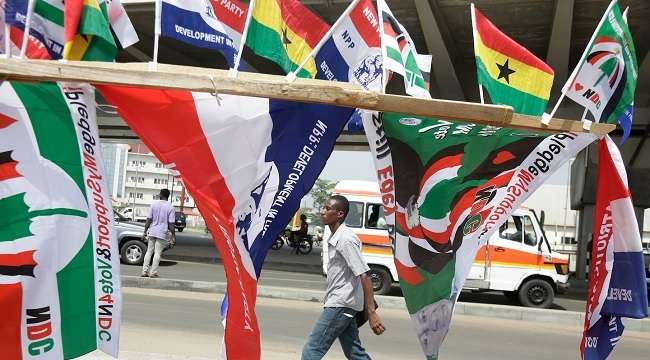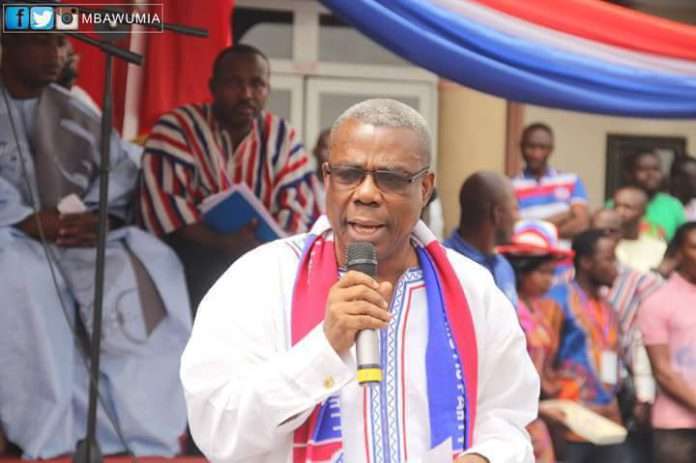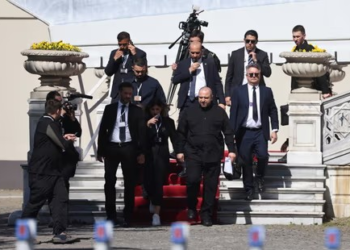Peter Mac Manu, a former National Chairman of Ghana’s governing New Patriotic Party (NPP), has made a compelling case for instituting a time limit on political campaigns in the country.
Speaking at the Ghana Academy of Arts and Sciences’ annual public forum, which this year was themed “National Elections in Ghana: Issues and Prospects,” Mr. Manu highlighted the need for reform in the nation’s electoral processes to better facilitate effective governance and reduce financial burdens on political actors.
“I think in this country we used to say that the next elections begin after the end of the last election. How can you campaign for four years?… Our campaign periods are too long and we have to shorten it.”
Peter Mac Manu, a former National Chairman of NPP
In his address on the topic “Regulating Campaign Financing for National Elections: A Comparative Perspective,” Mr. Manu criticized the current length of the campaign period in Ghana. He argued that the extended duration of political campaigns impedes the ability of elected governments to effectively implement their policies.
Mr. Manu suggested that the official campaign period should begin when the EC approves nominations, which, under current regulations, is around September 19. “That’s when you become a candidate, that’s when you can call your campaign. But that is not the case and I think this is an area we have to look at because we can’t spend four years campaigning,” Manu stated.
Comparing Ghana’s campaign duration with other countries, Mr. Manu noted that nations like Nigeria and Kenya have much shorter campaign periods, each limited to six months. He expressed support for similar reforms in Ghana, echoing sentiments from groups like the Ghana Bar Association, which have also advocated for shorter campaign periods.
Need for Reform in Campaign Financing

As the NPP Campaign Manager for the 2016 and 2020 elections, Mac Manu also called for comprehensive reforms to the Political Parties Act 2000 (Act 574). He emphasized the necessity of regulating campaign donations and expenditures to ensure a fair electoral process.
According to Mac Manu, expenditure limits should be imposed not only on political parties but also on their parliamentary and presidential candidates. This reform, he argued, should clearly delineate what constitutes election expenditure to prevent excessive spending.
The former chairman lamented the escalating cost of politics in Ghana, both in internal party elections and general elections. The high cost, he argued, has disenfranchised many competent individuals, particularly the youth, women, and persons with disabilities, from seeking political office.
“We must take bold steps to end this canker and curb the potential of handing over power to the highest bidder in the future.”
Peter Mac Manu, a former National Chairman of NPP
The forum also featured William Nyarko, the Executive Director of the Africa Centre for International Law and Accountability. Nyarko expressed concern over the lack of regulations governing campaign financing in Ghana, urging immediate action to develop such regulations. He argued that campaign finance regulation is essential for holding individuals and political parties accountable to the citizens.
The call for reform by both Mr. Manu and Mr. Nyarko comes at a crucial time as Ghana continues to grapple with the challenges of ensuring free, fair, and financially transparent elections. The proposed changes aim not only to streamline campaign periods but also to introduce financial prudence into the electoral process, thereby fostering a more equitable political landscape.
The Ghana Academy of Arts and Sciences forum served as an important platform for discussing these pressing electoral issues. As stakeholders from various sectors engage in dialogue, the hope is that these discussions will translate into concrete legislative and regulatory actions that can improve the quality of Ghana’s democratic processes.
Mr. Peter Mac Manu’s advocacy for a time limit on political campaigns and the call for reforming campaign financing laws reflect a broader desire to enhance the effectiveness and integrity of Ghana’s electoral system.
READ ALSO: New Shea Processing Centre in Northern Ghana Promises Economic Empowerment and Social Benefits



















